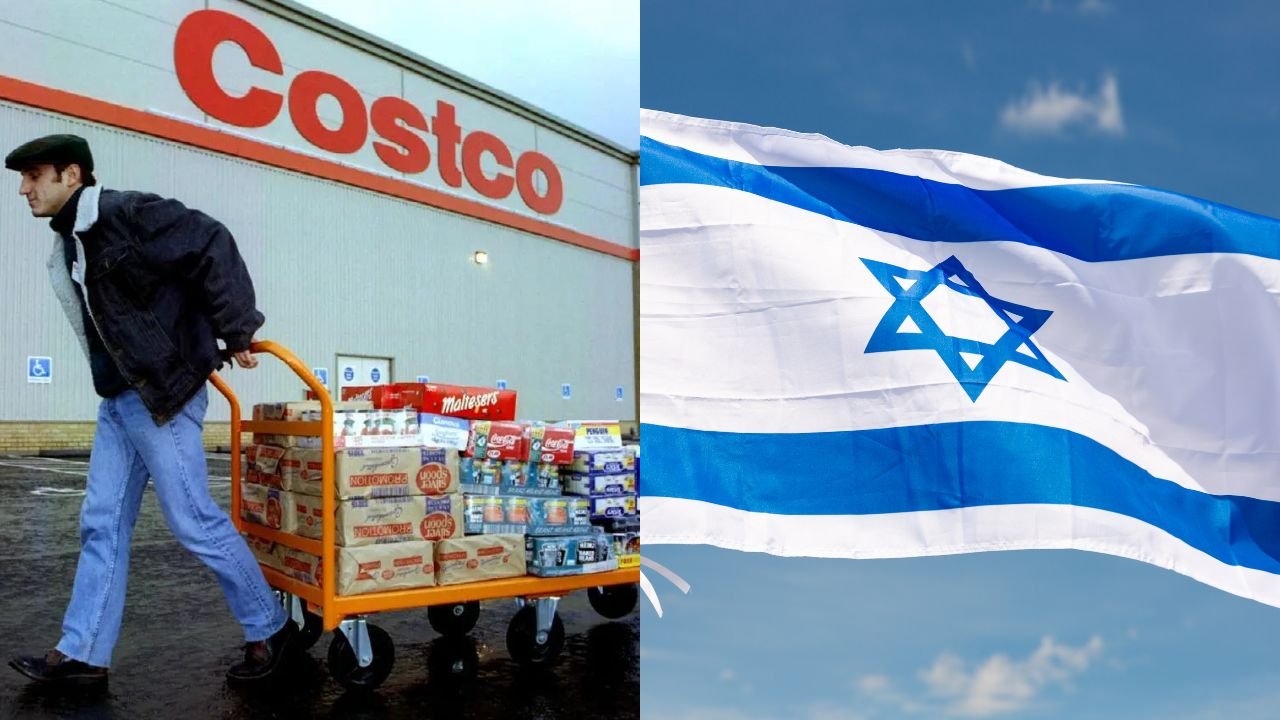Does Costco Support Israel? Costco has faced criticism for selling Israeli products, leading to boycott calls from pro-Palestinian groups.
Costco Wholesale Corporation is a global retail giant known for its membership-only warehouse clubs that offer a wide range of products at competitive prices.
With its extensive reach and influence, Costco’s business practices and ethical stances have come under scrutiny from various quarters.
One question that has sparked significant interest and debate is whether Costco supports Israel, a topic that has drawn attention due to the complex geopolitical dynamics surrounding Israel and the broader Middle East.
Contents
What Is Costco?
Costco Wholesale Corporation, commonly known simply as Costco, was founded in 1983 in Seattle, Washington. [Does Costco Support Israel?]
The company has since grown into one of the world’s largest retailers, with hundreds of warehouses spread across multiple countries.
Costco operates on a membership-based model, offering its members a wide range of products, including groceries, electronics, clothing, and more.
The company’s business philosophy centers around providing quality goods at low prices, often in bulk, which appeals to both individual consumers and small businesses.
Costco is also known for its commitment to employee welfare, offering higher-than-average wages and benefits to its workers.
This has earned the company a reputation for ethical business practices, which contrasts with the criticisms it faces regarding its sourcing and international dealings, particularly concerning its alleged support for Israel.

Does Costco Support Israel?
The question of whether Costco supports Israel is multifaceted, involving business decisions, international trade practices, and the complex socio-political environment in which global companies operate.
Here are five key facts that shed light on Costco’s relationship with Israel:
1. Selling Israeli Products
Costco’s sale of Israeli products has made it a target for boycott campaigns organized by pro-Palestinian groups. [Does Costco Support Israel?]
These campaigns, often associated with the Boycott, Divestment, Sanctions (BDS) movement, advocate for the economic isolation of Israel to pressure it into changing its policies towards Palestinians.
Products such as clementines, avocados, and other agricultural goods sourced from Israel have been the focal point of these boycotts.
Critics argue that by selling these products, Costco indirectly supports Israel’s economy and, by extension, its policies.
However, Costco’s stance on this matter is that its product sourcing is based on quality, availability, and cost-effectiveness rather than political considerations.
The company’s global supply chain sources products from various countries, including Israel, depending on what is most beneficial for its customers and business model.
Costco has emphasized that decisions regarding product sourcing are primarily influenced by seasonal availability and the need to provide fresh produce to its members.
This perspective underscores the company’s focus on maintaining a consistent supply of high-quality products rather than engaging in geopolitical issues.
2. Geopolitical Sensitivity
The sale of Israeli goods places Costco in a delicate position within the complex geopolitical landscape. For many global companies, including Costco, engaging in international trade means navigating a web of political and social sensitivities.
The sale of Israeli products is particularly contentious due to the ongoing conflict between Israel and Palestine, which has drawn international attention and polarized public opinion.
Costco’s decision to continue selling Israeli products despite boycott calls highlights the company’s commitment to its business principles over external political pressures.
This approach is not uncommon among multinational corporations that operate in politically sensitive regions. [Does Costco Support Israel?]
For Costco, maintaining neutrality in such matters allows it to focus on its primary goal: serving its members with a wide selection of quality products.
Nevertheless, the company’s actions are often interpreted differently by various groups. While some view Costco’s continued sale of Israeli goods as tacit support for Israel, others see it as a pragmatic business decision.
This ambiguity allows Costco to operate in diverse markets without taking explicit political stances, a strategy that has helped the company avoid becoming entangled in political controversies.
3. Invitation to Enter the Israeli Market
In an interesting development, Israel’s Finance Minister, Bezalel Smotrich, extended an invitation to Costco to open stores in Israel.
This move reflects Israel’s desire to attract international retailers to increase competition within its domestic market. [Does Costco Support Israel?]
The entry of a global giant like Costco could potentially lower prices and provide Israeli consumers with more shopping options, which is particularly appealing in light of rising living costs.
While Costco has not yet confirmed whether it will accept this invitation, the prospect of entering the Israeli market marks a significant potential shift in the company’s relationship with Israel.
Establishing a physical presence in Israel would deepen Costco’s ties with the country, moving beyond mere product sourcing to direct investment and operations within the Israeli economy.
However, this invitation also presents challenges. The Israeli retail market is highly competitive and characterized by unique local dynamics, including high real estate costs and complex regulatory requirements.
For Costco, entering this market would require careful consideration of these factors to ensure that its business model, which relies on large-scale, high-volume sales, can be successfully implemented in Israel.

Costco’s response to boycott pressures illustrates the company’s strategy of remaining neutral on politically sensitive issues.
When faced with criticism for selling Israeli products, Costco has typically responded by emphasizing that its sourcing practices are routine and based on business considerations.
For example, when the company switched its sourcing of clementines from Israel to Spain, it clarified that this change was part of its regular seasonal sourcing practices rather than a response to boycott pressures.
This pragmatic approach allows Costco to maintain its business operations without becoming overly involved in political disputes. [Does Costco Support Israel?]
By focusing on efficiency and customer satisfaction, Costco has managed to continue offering a wide range of products, including those from Israel, without alienating significant portions of its customer base.
Costco’s handling of these pressures reflects a broader trend among multinational corporations, which often seek to navigate politically charged issues without taking explicit stances.
For Costco, this strategy has enabled it to maintain its global operations while avoiding the potential pitfalls of becoming embroiled in controversial political debates.
5. Ethical Considerations
As a company known for its ethical business practices, Costco faces a delicate balancing act when it comes to its involvement with Israel.
On one hand, the company’s commitment to providing quality products at competitive prices drives its decision to source goods from Israel.
On the other hand, Costco must also consider the ethical implications of its business decisions, particularly in light of the ongoing Israeli-Palestinian conflict.
While Costco does not explicitly endorse or oppose Israel’s political actions, its decision to continue selling Israeli products can be seen as a form of tacit support by some groups.
This perception is further complicated by the company’s potential entry into the Israeli market, which would represent a more direct involvement in the Israeli economy.
However, Costco’s broader business practices, such as its commitment to employee welfare and ethical sourcing, suggest that the company takes its responsibilities seriously.
This commitment extends to ensuring that its products meet high standards of quality and safety, regardless of their country of origin.
In this context, Costco’s involvement with Israel can be viewed as part of its broader strategy to provide value to its members while adhering to its core business principles.
See Also: Does Panda Express Support Israel?
FAQs
1. Why does Costco sell Israeli products?
Costco sells Israeli products as part of its global sourcing strategy, which is based on factors such as quality, availability, and price. The company does not base its product selection on political considerations.
2. Has Costco faced backlash for selling Israeli goods?
Yes, Costco has faced boycott campaigns and criticism from pro-Palestinian groups for selling Israeli products. However, the company has maintained that its sourcing decisions are business-driven.
3. Is Costco planning to open stores in Israel?
Costco has been invited by Israel’s Finance Minister to open stores in the country, but as of now, the company has not made any official announcements regarding entering the Israeli market.
4. Does Costco’s sale of Israeli products mean it supports Israel politically?
Costco’s sale of Israeli products is a business decision, not an endorsement of any political stance. The company aims to provide a wide range of products to its customers, regardless of their country of origin.
5. How does Costco respond to boycott campaigns?
Costco typically responds to boycott campaigns by clarifying that its sourcing practices are routine and based on business factors. The company aims to remain neutral on political issues while focusing on providing value to its customers.
Conclusion: Does Costco Support Israel?
The question of whether Costco supports Israel is not straightforward and involves a complex interplay of business practices, geopolitical dynamics, and public perceptions.
While Costco does sell Israeli products and has been invited to enter the Israeli market, these actions appear to be driven more by business considerations than political alignment.
As a global retailer, Costco’s primary focus remains on delivering quality products at competitive prices, navigating the challenges of a diverse and often politically charged marketplace with a careful balance of neutrality and business acumen.
In conclusion, Costco’s relationship with Israel is best understood as part of its broader global business strategy rather than an explicit political statement.
The company’s approach to sourcing products, handling boycott pressures, and considering market entry opportunities reflects its commitment to its members and its business principles.
Whether or not Costco supports Israel is ultimately a matter of interpretation, but what remains clear is that Costco’s primary allegiance is to its customers and its mission of providing value through high-quality goods and services.

Hi, I am Jackson Barton, a blogger who loves to share the latest news about the world. I cover big topics like the Israel-Palestine issue and news about Biden and Trump. Many people, like me, want to know whom famous people and brands support on these issues. That’s why I started my blog, to share important news and information with others who are also curious and eager to learn.

